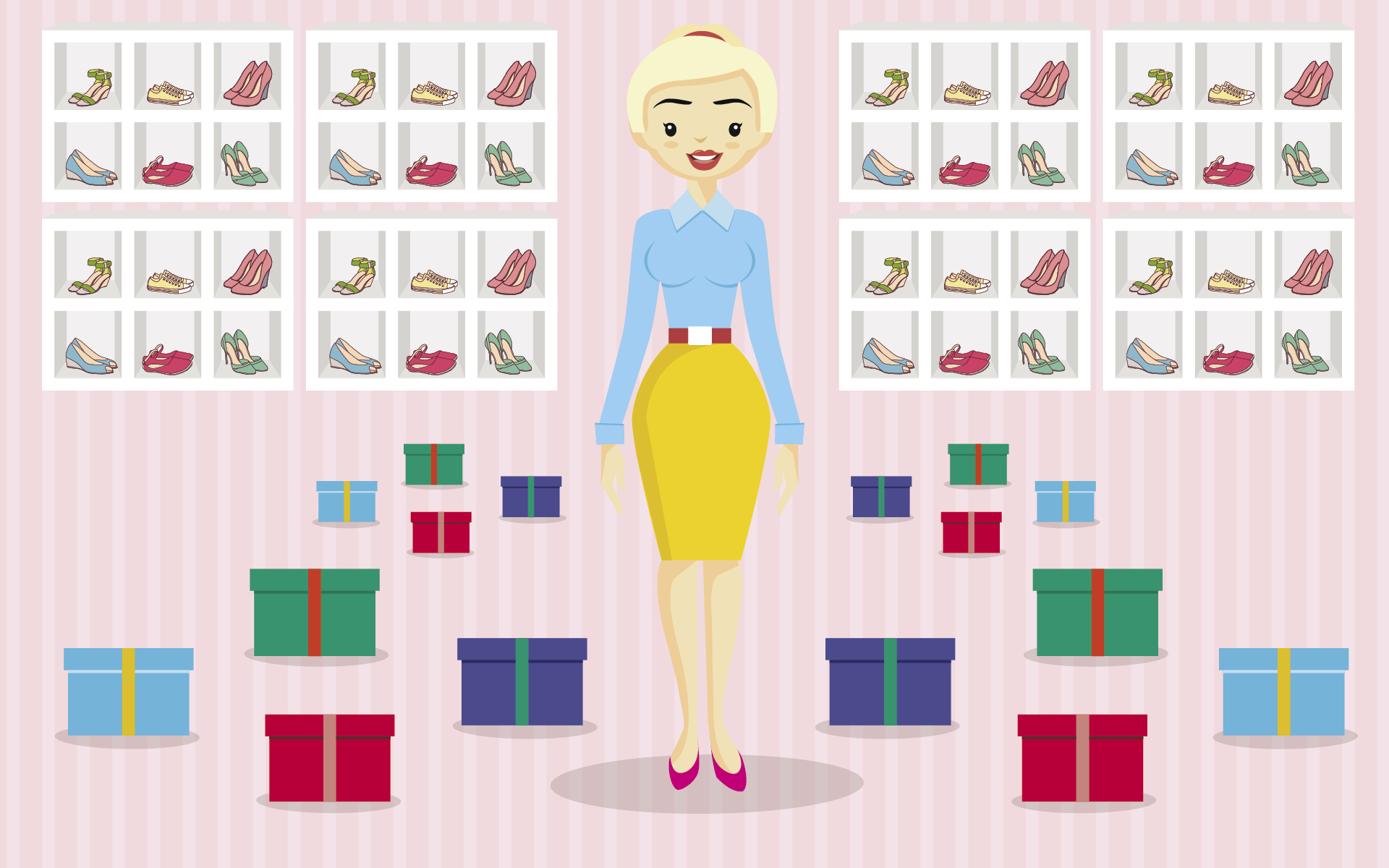Being seen to have money is a natural human instinct in our status-obsessed society. But true wealth takes its cue from a deeper impulse to avoid showing off, and being happy with what you have.

 A few weeks ago I made an uncharacteristic, extremely impulsive shoe purchase. I can only blame the fact that I was stuck in a shoe store filming for nearly two hours, and these gorgeous, seductive shoes kept calling, in fact begging, to me to buy them.
A few weeks ago I made an uncharacteristic, extremely impulsive shoe purchase. I can only blame the fact that I was stuck in a shoe store filming for nearly two hours, and these gorgeous, seductive shoes kept calling, in fact begging, to me to buy them.
To put this purchase in context, these are the most expensive shoes I have ever bought, and they were not planned or budgeted for – and I am a personal finance expert.
However, this column is not about the dangers of having a credit card or tips on how to control your impulse. It’s about the reaction to these recklessly purchased shoes.
Having spent a ridiculous amount of money on them, I immediately put them on and wore them to my next meeting. When the meeting was over, the woman I had met returned with three colleagues to ogle my shoes, which received high praise and were certainly the cause of a great deal of envy.
As I left the building I was still carrying the store packet, which now held my far less glamorous shoes, and the security guard commented on the brand of the store, most impressed that I shopped there.
The next day, making sure I was getting maximum mileage, I wore them to another meeting and the experience was repeated. Several women in the meeting gathered around l, demanding to know where I had found such exquisite shoes.
It was a very strange experience. My shoes had taken on a life of their own. Never in my life had I worn a piece of clothing that made me the envy of every woman in the room. I started to understand why people spend so much money on their outer appearances. Such attention and envy can be very intoxicating.
The philosopher Alain de Botton argues that the reason we buy luxury or status goods like cars, clothes and other accessories is not so much for the item itself, but for the reactions we seek. In effect, we are buying other people’s attention and their perceived value of us.
In a quip in his TED talk, entitled “A kinder, gentler form of success”, he suggests that the next time we see someone driving a Ferrari, don’t think of them as greedy, “think of them as incredibly vulnerable and in need of love”.
De Botton also questions how often we buy things that society values, rather than what we truly value. Do we even know what it is that we truly value, apart from affirmation?
An associate describes this façade of status as the ‘visible versus the invisible’ – that which we portray to the outside world to hide the reality of what is really going on, emotionally or financially.
She used this term to describe her own journey which involved giving up on status, her visible mask, in order to fix the invisible. Her business was in difficulty and she had to make some significant cuts to her lifestyle.
This involved trading her luxury car for a secondhand entry-level car, in white. She jokes that she is forever losing it in the car park among all the other identical cars. In trading in her status, she lost her material identity.
What she understood in taking this step was that she was admitting to her friends, cohorts and the public at large that she was not as financially successful as her image had portrayed. That she had taken some knocks and made some bad decisions.
That is a tough, brave thing to do, one that most people avoid at all costs, until they have dug a hole so deep that the crisis can no longer remain invisible. We avoid this sacrifice because we associate success with material wealth, and no-one wants to be perceived as “a loser”.
Yet I have no doubt that by taking this brave step, she is ensuring the long-term sustainability of her business and her own finances. In doing so she had to make the invisible, visible.
She is also discovering the intense relief of no longer trying to keep up with the Joneses and her stress levels have reduced to levels where she can once again sleep at night. She says her relationships with friends have deepened and she now has far more meaningful discussions about life and values.
Imagine how much easier our lives would be if we recalibrated the concept of success, if we started to value the invisible over the visible, if we started living and spending our money on things we actually wanted, rather than the things society and marketers tells us we should want.
But then of course, we would need to know what it is that we really do want. And maybe that is harder, requiring more imagination and introspection than simply buying the car the advert tells use we should be driving.

Leave a Reply